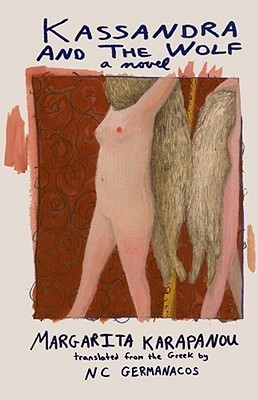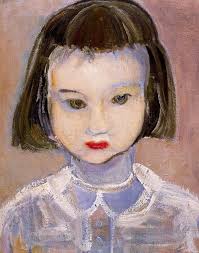About
Author: Margarita Karapanou (Greece)
Genre: Individualistic Fiction
Setting
Place: Athens, Paris
Time: 1970s
My Rating (see what this means)
My Subjective Rating: 3
My ‘Objective’ Rating: 1.96
Introduction

Much of the setting in ‘Kassandra and the Wolf’ by Margarita Karapanou builds itself in small incomplete fragments between the fifty-six vignettes that make up this book. We can place the events – somewhere in Athens’ affluent neighbourhoods – in the 60s or 70s with occasional trips to Paris, and not much else.
Much about the characters – a distant grandmother, a distant-er mother, a mad father, a pedophile butler, a dead cat – again is learnt in small incomplete fragments allowing for, at best, a hazy portrait. Same goes for the 6-year old protagonist narrator Kassandra – is she just a six year old or a difficult teenager or an institutionalized madwoman?
However what these fifty-six vignettes paint clearly are Kassandra’s darkest, most horrible horrors growing up – real (and some hopefully imagined)
When I’m alone, I talk endlessly: to my dolls (lessons in bonnes manieres), at the walls and doors- nothing can stop me. I become a toilet flush, a Niagara Falls, a running nose, puke. With family around, the words shrivel, become round and heavy like stones, fall deep inside me, impossible to fish out again.
This books is Kassandra’s lonely ruminations
Review
Reading Karapanou’s novel provoked similar shock and awe and reminded me of what an art critic wrote on earlier work of Berlinde De Bruyckere: art doesn’t have to eschew the worst, but showing a little mercy with the audience at times won’t hurt either.*
This book, however, offers no mercy!

It’s never really clear how old Kassandra is. She is narrating as a six-year old. That, however, may be a way of obfuscating the horrors of her life. If that’s was it – the book fails beautifully. For Karapanou’s book can be nauseating – for all the violence – sexual or otherwise, perversion and sickness. Such a work had to be beautifully written for it to find readership (an it is.)
Other objective parameters to evaluate a work of fiction: Narrative style – jarring at best, Setting and World building – barely enough, Pace – crisp though impossible to power through – don’t seem to matter – or perhaps had to be barebones to truly capture the horrors.
However, what evaded me was the point of the book? Such horrors cannot be all true? Certainly not in a single life and certainly not all in a life of a 6-year old. Why write such violence, however beautifully, in the first place.
“Cassandra is historically a symbol of reaction, a refuge in personal laws,” Karapanou would say (Feloukatzi 1976: 30). This name refers to the one who sees truths that others would have difficulty admitting…***
What we can be certain about Kassandra is that she is a lonely neglected girl – with the lack of love forming a gaping hole that none of her affluent circumstance can fill. Add in it the care of a Wolf (a pedophile of a butler who she tries to replace for her absent disinterested mother – and the horror!
The lack of a discernible point, made me frustrated with the brutality of the novel and I was quite prepared to dismiss writing a blog on it entirely. However, I came across a Greek blog which much better contextualizes the story – at least part of the book are autobiographical!! The English edition I had also didn’t have the book’s dedication – “To my mother, Margarita Lymberaki, with love”
“I don’t know how I became a writer. Perhaps deep unhappiness pushed me. One day, I was starting my first novel. I cried with joy, the tears were smearing the pages. Mother, you cried with joy too. The written papers were finally separating us. That night I had no nightmares, a sweet peace overwhelmed me. I had been born” (Karapanou 2004: 127-8).
Picture Credits:
- https://psychwire.com/free-resources/q-and-a/qm7svp/rumination-focused-cbt
- Marlene Dumas – Child With Lipstick
- * <https://www.goodreads.com/book/show/6650152-kassandra-and-the-wolf> – Ilse
- **<https://www.goodreads.com/book/show/6650152-kassandra-and-the-wolf> – Gaurav Sagar
- ***<https://www.oanagnostis.gr/i-kassandra-kai-o-lykos-kai-i-aytomythoplasia-xanagrafontas-tin-paidiki-ilikia-tis-sofias-iakovidoy/>